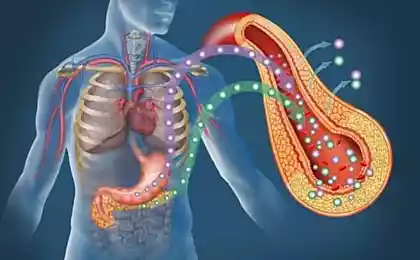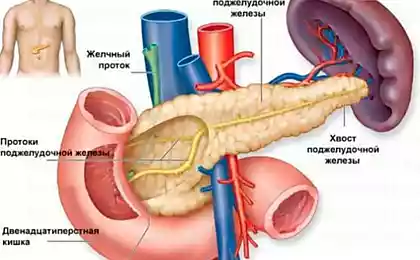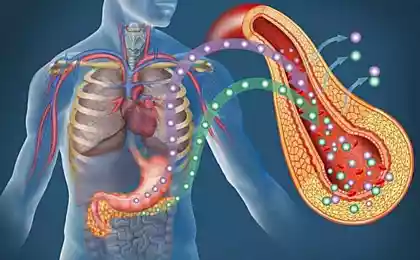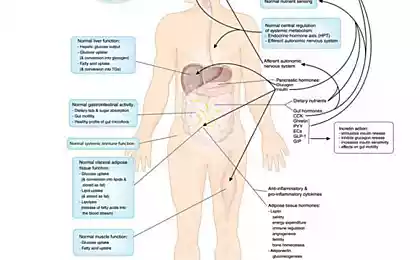451
How to lose weight just by changing my schedule
You probably have heard from different friends: "I don't eat after six". There are plenty of people who believe that the key to weight loss lies in the fact that "do not eat at night." Why "night" everyone starts at six o'clock in the evening, regardless of when the person lies down and when it rises,it is hard to say — probably, it just happened.
In fact, the differences in day and night metabolism, of course, exist, and the regular night snacking are associated with increased risk of diabetes and cancer. These differences may be associated with different levels of the hormones cortisol and melatonin at different times of the day and their impact on the regulation of metabolism.
However, there is no scientific data that would show that at exactly six o'clock in the evening all the people together and cross some magical line beyond which begins an intense gain weight. But try telling any fan of "do not eat after six" on the meaninglessness of such an undertaking (especially when at half past five it absorbs a portion of pasta or French fries) and you will probably answer that it helps him personally. And he is right: the idea is not to eat after six, for all its meaninglessness really works.
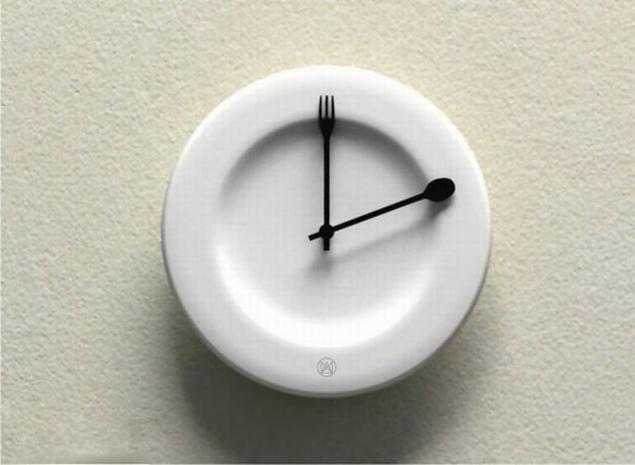
All the matter in the interval fasting — regular long periods during which the body receives no food and has to switch to burning its own fat reserves.
If a person does not eat after six and leads a normal lifestyle, then will lunch it, most likely not earlier than 8-9 o'clock in the morning — ie after 14-15 hours after dinner. And it is very good and should really help to lose weight. But there is no reason to bind it to six o'clock in the evening a at that time still at work or commuting in traffic home, and not everyone wants to go all night hungry.
The principle is simple: the later you ate dinner, the later you should eat Breakfast. Or, for example, skip Breakfast, and early — at 12 o'clock — lunch.
One of the most popular schemes of interval fasting, 16:8, i.e. all meals must fit in an 8-hour window. For example, from 12 PM to 8 PM or from 10 am to 6 PM — as you prefer. If due to work schedule it is inconvenient to keep the "window of fasting" in 16 hours, it is possible and less, for example, 13-15 hours — this will still be good.
To test this assertion, the BBC news channel had a small, but interesting study. 16 volunteers were divided into two groups. One group — the control group — continued to eat as usual.
Participants in the second group — experimental — gave instructions to change your schedule of meals: Breakfast a half hour later than usual, and for dinner a half hour earlier. Snack between supper and Breakfast they were forbidden. Thus, they increased their normal period of night fasting for three hours. While they all ate the same as usual.
Through 10 weeks of the experiment, the participant survey showed a significant difference between the two groups. Here are the figures showing the differences of metabolic parameters in the control group (blue) and experimental (red):
The volume of adipose tissue:
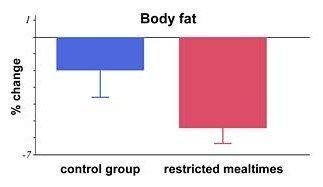
The level of sugar in the blood:
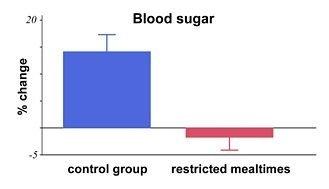
Cholesterol:
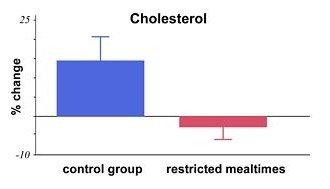
It turns out that merely changing meal times, it is possible to lose weight and reduce risk factors of many diseases. Says who led the study, Dr. Jonathan Johnson, in real life there is no need to adhere to such restrictions, as the participants of the study that can easily interfere with social conditions.
But every time you have the opportunity to have an early dinner and a later Breakfast, this opportunity should take advantage of — increase in the periods of the night hunger and rejection really late feasts can positively affect your health.
It is clear that the small number of participants does not allow to classify this experiment as a large-scale scientific research. But the results are quite consistent with earlier studies in mice and humans. Interval fasting is becoming a popular direction in nutrition at all. After all, the combination of two effective methods can lead to synergetic "turbo-effect" and dramatically speed up the process of losing weight or to help overcome a plateau. published
P. S. And remember, just changing your mind - together we change the world! ©
Source: lchf.ru/9187
In fact, the differences in day and night metabolism, of course, exist, and the regular night snacking are associated with increased risk of diabetes and cancer. These differences may be associated with different levels of the hormones cortisol and melatonin at different times of the day and their impact on the regulation of metabolism.
However, there is no scientific data that would show that at exactly six o'clock in the evening all the people together and cross some magical line beyond which begins an intense gain weight. But try telling any fan of "do not eat after six" on the meaninglessness of such an undertaking (especially when at half past five it absorbs a portion of pasta or French fries) and you will probably answer that it helps him personally. And he is right: the idea is not to eat after six, for all its meaninglessness really works.

All the matter in the interval fasting — regular long periods during which the body receives no food and has to switch to burning its own fat reserves.
If a person does not eat after six and leads a normal lifestyle, then will lunch it, most likely not earlier than 8-9 o'clock in the morning — ie after 14-15 hours after dinner. And it is very good and should really help to lose weight. But there is no reason to bind it to six o'clock in the evening a at that time still at work or commuting in traffic home, and not everyone wants to go all night hungry.
The principle is simple: the later you ate dinner, the later you should eat Breakfast. Or, for example, skip Breakfast, and early — at 12 o'clock — lunch.
One of the most popular schemes of interval fasting, 16:8, i.e. all meals must fit in an 8-hour window. For example, from 12 PM to 8 PM or from 10 am to 6 PM — as you prefer. If due to work schedule it is inconvenient to keep the "window of fasting" in 16 hours, it is possible and less, for example, 13-15 hours — this will still be good.
To test this assertion, the BBC news channel had a small, but interesting study. 16 volunteers were divided into two groups. One group — the control group — continued to eat as usual.
Participants in the second group — experimental — gave instructions to change your schedule of meals: Breakfast a half hour later than usual, and for dinner a half hour earlier. Snack between supper and Breakfast they were forbidden. Thus, they increased their normal period of night fasting for three hours. While they all ate the same as usual.
Through 10 weeks of the experiment, the participant survey showed a significant difference between the two groups. Here are the figures showing the differences of metabolic parameters in the control group (blue) and experimental (red):
The volume of adipose tissue:

The level of sugar in the blood:

Cholesterol:

It turns out that merely changing meal times, it is possible to lose weight and reduce risk factors of many diseases. Says who led the study, Dr. Jonathan Johnson, in real life there is no need to adhere to such restrictions, as the participants of the study that can easily interfere with social conditions.
But every time you have the opportunity to have an early dinner and a later Breakfast, this opportunity should take advantage of — increase in the periods of the night hunger and rejection really late feasts can positively affect your health.
It is clear that the small number of participants does not allow to classify this experiment as a large-scale scientific research. But the results are quite consistent with earlier studies in mice and humans. Interval fasting is becoming a popular direction in nutrition at all. After all, the combination of two effective methods can lead to synergetic "turbo-effect" and dramatically speed up the process of losing weight or to help overcome a plateau. published
P. S. And remember, just changing your mind - together we change the world! ©
Source: lchf.ru/9187





